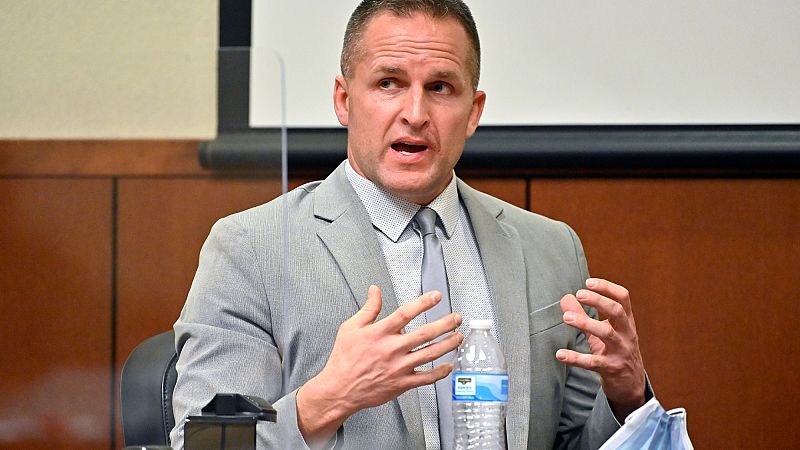Background of the Case
A former Kentucky police officer, Brett Hankison, was sentenced to nearly three years in prison for using excessive force during a 2020 raid that resulted in the death of Breonna Taylor. This case has become a focal point for discussions on police brutality and racial injustice in the United States.
During the incident, Hankison fired 10 shots into Taylor’s apartment but did not hit anyone. Despite this, he was the only officer charged with her death. The federal judge overseeing the sentencing rejected the U.S. Justice Department’s recommendation for no prison time, emphasizing that such a decision would undermine the jury’s verdict from November.
Judicial Decision and Sentencing Details
Judge Rebecca Grady Jennings, who presided over the case, stated that no prison time was “not appropriate” and would minimize the significance of the jury’s decision. She expressed surprise that more people were not injured due to Hankison’s actions, which she described as “blind shots.”
Hankison, now 49 years old, received a sentence of 33 months in prison for the conviction of using excessive force. Following his release, he will serve three years of supervised probation. This marked a significant moment, as he became the first person to be sentenced to prison in connection with the case that ignited nationwide protests against police brutality.
Impact of Breonna Taylor’s Death
Breonna Taylor’s death, along with the police killing of George Floyd in Minneapolis, sparked widespread demonstrations across the country in 2020. These incidents highlighted deep-seated issues of racial injustice and prompted calls for reform in law enforcement practices.
Taylor was shot in her hallway by two officers after her boyfriend fired from inside the apartment, striking an officer in the leg. However, neither of the other officers involved was charged in state or federal court, as prosecutors determined they were justified in returning fire into the apartment.
Investigation and Related Charges
Louisville police used a drug warrant to enter Taylor’s apartment, but no drugs or cash were found inside. This raised questions about the legitimacy of the warrant and the circumstances surrounding the raid.
Three other police officers have been charged with creating a falsified warrant in the Taylor case, but none have gone to trial. Importantly, none of these officers were present at the scene when Taylor was shot. The warrant used to enter her apartment was one of five issued that night in search of evidence related to an alleged drug dealer that Taylor had once been associated with.
Ongoing Implications
The case has led to increased scrutiny of police procedures and the use of warrants in drug investigations. It also underscores the need for transparency and accountability within law enforcement agencies. As the legal proceedings continue, the broader implications of this case are likely to influence future policies and public discourse on policing in the United States.







